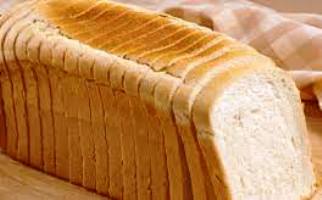Some consumers of confectionaries in Bwari Area Council of the FCT, have stopped buying bread, meat pies and other pastries, due to continuous hikes in the price of the commodities.
The consumers spoke in separate interviews on Monday in Abuja.
They said that the increasing cost of food commodities had forced them to seek alternatives for breakfast.
A mother of four, Mrs Ada Christopher said the price of bread had persistently increased and almost unaffordable for the average Nigerian.
She said that although her children loved to eat bread with tea for breakfast but could not afford it any longer as a big loaf costs between N1,700 and N2,000.
Christopher said a medium size loaf costs between N1,200 and N1,500 at a popular bakery in the area.
“I have four children and we buy two loaves of bread every day before now, but I had to reduce to buying thrice a week when it became N1,000 per loaf.
“With the latest price, I don’t think it is sustainable and we have to look for something else as alternative for breakfast.”
Christopher added that pastries such as egg/fish rolls and meat pies, which could serve as fast foods have also become out of reach as such cost more than N500.
Christopher attributed the cost to the constant rise of flour and other baking essentials in the market, which she added, must be the reason bakers kept increasing the price.
Similarly, another consumer, Mrs Patricia Amos, said that she had tagged bread, cakes and other pastries as luxuries because they cost too much to afford.
Amos, who said that she had a large family, added that buying bread for her family every day would cost her a fortune because she would buy two or more loaves.
She added that although foodstuff had increased in price, she would rather look for alternative foods to serve as breakfast for her family.
“I now go for alternatives like pap, moi-moi, bambara nut commonly called ‘okpa’ and sweet potatoes to replace bread with tea for my family.m
However, a baker, Mr Shadrach Ayani said that the hike in price was not deliberate as it was done according to the price of flour, sugar and other major ingredients of baking.
He attributed the unstable price change to economic inflation and other constraints toward getting the products at a favourable price.
“You know most baking ingredients are imported and it is usually affected by the global wheat price increase, transportation and logistics challenges within Nigeria.
“The rise in exchange rate is further straining both small and larger bakeries and no consumer wants to buy and eat bread that is not rich or nutritious.
“Everyone wants soft, sweet and fresh bread and to get this preference, it is difficult to find cheaper ways to producing a good bread or pastry that can sell well, so the ingredients are quite essential,” he said.
Ayani said that although his bakery had reduced the quantity of bread it produced weekly because of a drop in patronage.
He, however, added that it was not so much that the bakery would stop production.
“Some days, you bake and bread remain for three four days on the shelf and we are forced to take them off because they may get spoilt.
“So, we just reduce the quantity we produce so we don’t run at loss, but we will continue to produce for our retail partners and few consumers.”
He prayed that the situation would come to an end soonest while advising consumers to ensure they patronise good and hygienic confectionaries and desist from patronising cheap and substandard foods.
NAN


